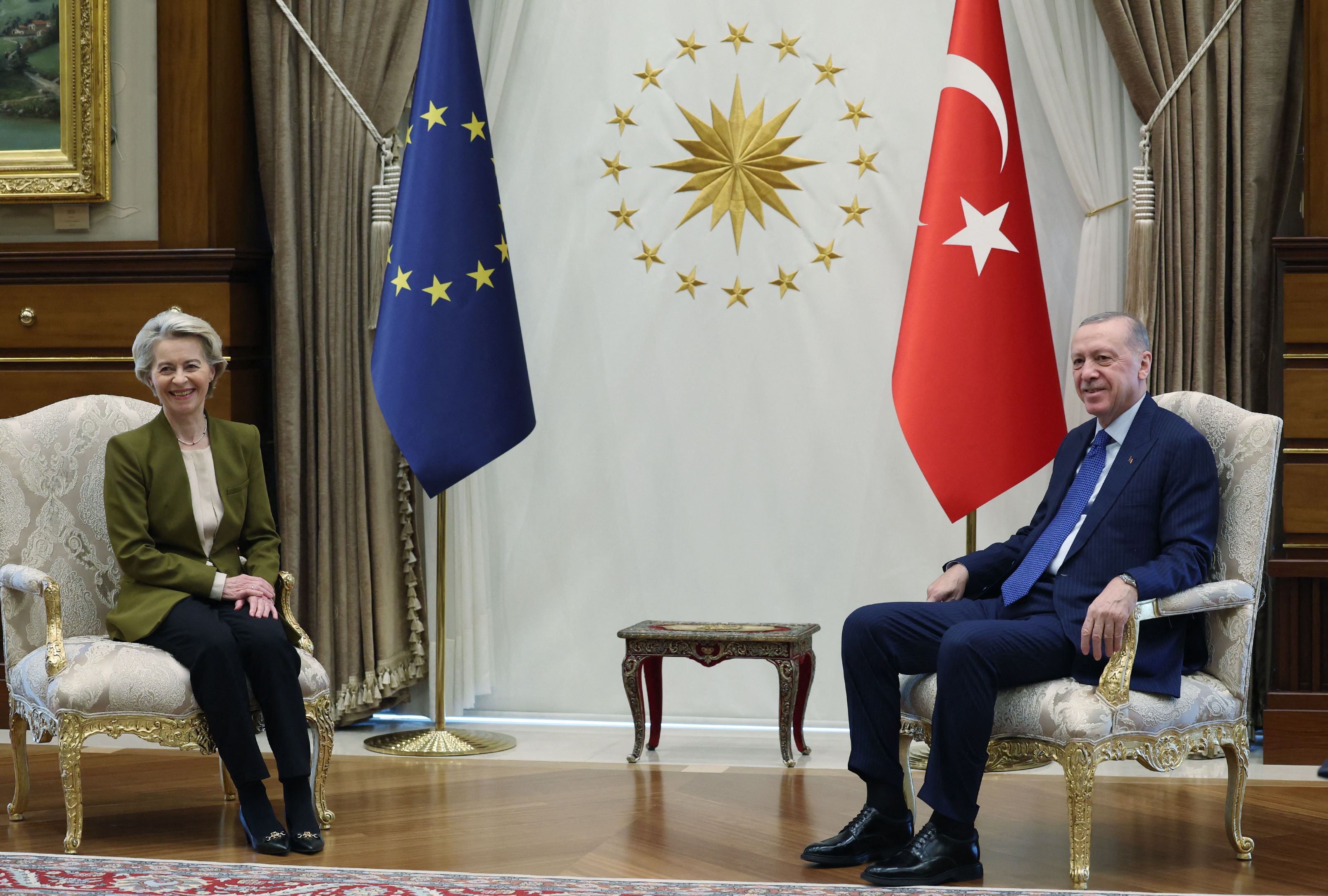EU sets aside 1 billion euros to help Syrian refugees in Turkey

The EU will release an extra 1 billion euros to help Syrian refugees in Turkey. European Commission president Ursula von der Leyen announced this on Tuesday during her visit to Ankara, Turkey.
Von der Leyen is in Turkey for talks with Turkish president Recep Tayyip Erdogan on the regional and international implications of the situation in Syria. The EU and Turkey hope that after the fall of dictator Bashar al-Assad in Syria, stability will return and more refugees will voluntarily return to their homeland. But that is not certain.
That is why, according to von der Leyen, the EU will release another 1 billion euros to help refugees in Turkey. "This will support, among other things, health care and education of refugees in Turkey, continue to contribute to migration and border management, including voluntary repatriations of Syrian refugees,” von der Leyen said.
Von der Leyen reiterated that since the Syrian civil war erupted in 2011, the EU has spent "almost 10 billion euros" to support refugees in Turkey. In 2016, the EU struck a deal with the Turkish government in which Ankara promised to stop the outflow of refugees to Europe, in exchange for financial support.
3 million refugees
Some 3 million Syrian refugees currently reside in Turkey. Faced with strong anti-Syrian sentiment in society, the Turkish government hopes that the fall of al-Assad will allow them to return. European money can be used for this purpose, von der Leyen said, but their return must be "voluntary, safe and dignified".
For his part, Erdogan stressed that European support is also needed in the longer term to enable refugee return, for example through investment in basic infrastructure in Syria.
The Turkish president also pushed for improved relations between his country and the EU. Turkey has long been considered as a candidate for membership of the bloc, but talks have stalled over the country's human rights violations and the weakening of the rule of law.
PHOTO © TURKISH PRESIDENTIAL PRESS SERVICE / AFP
Related news

